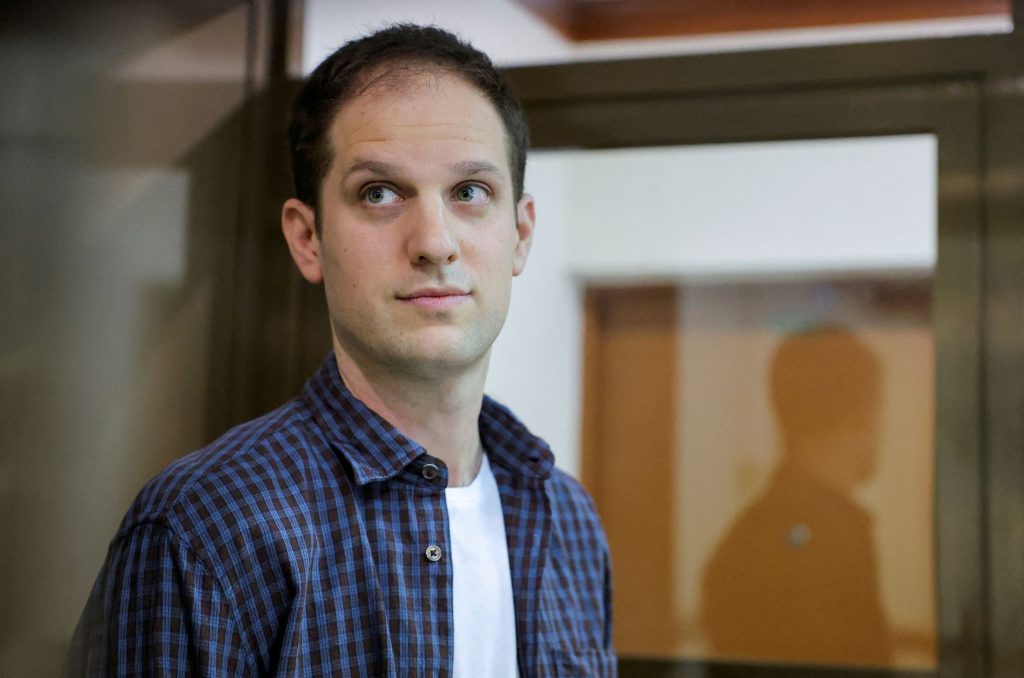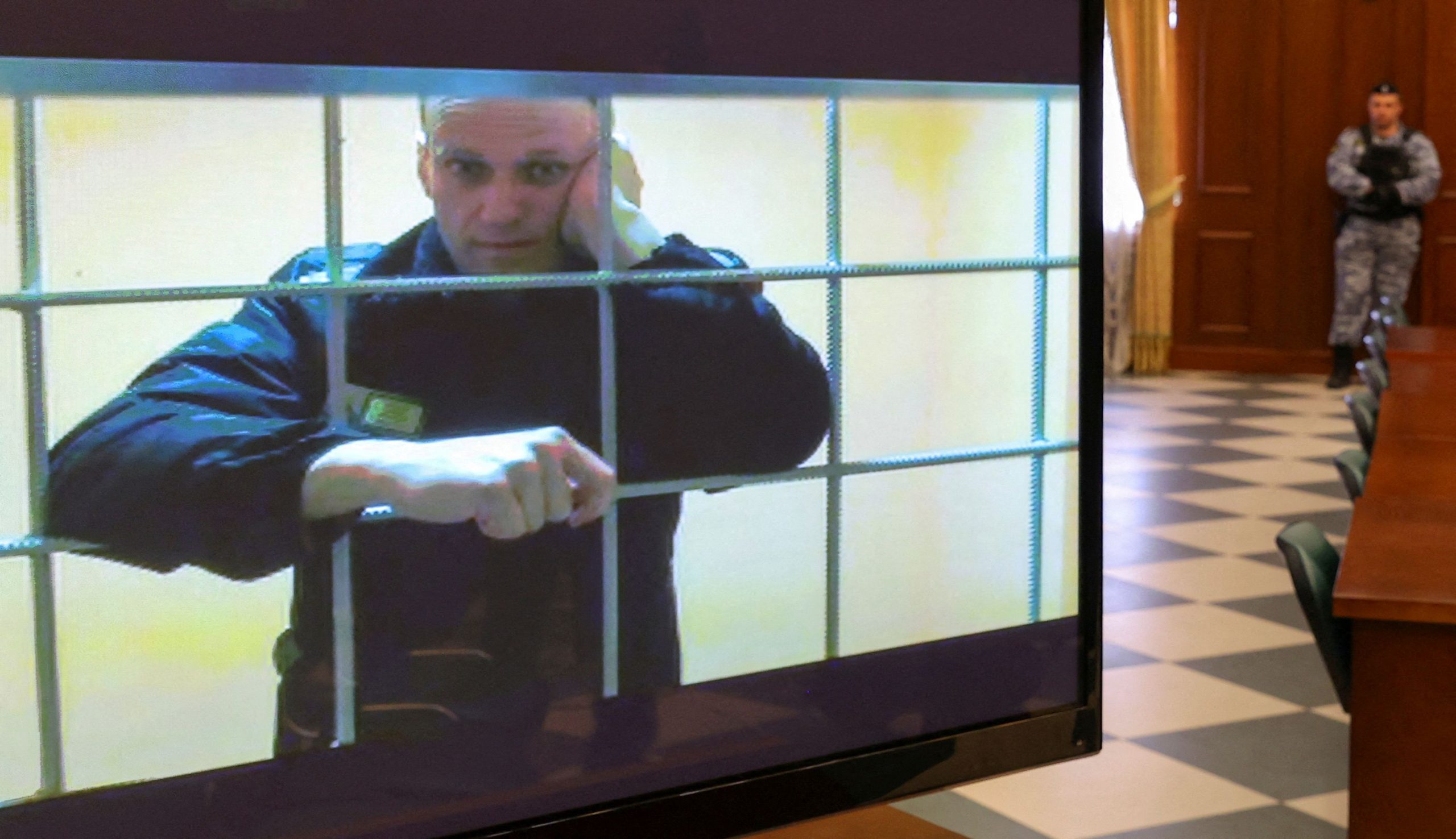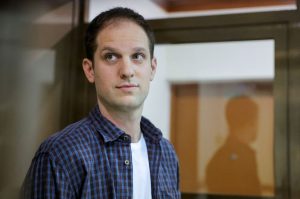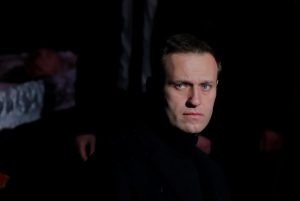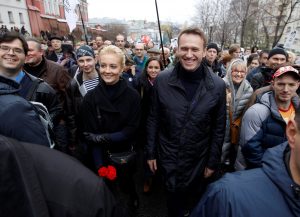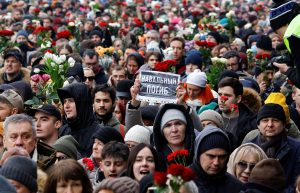WASHINGTON— Alexei Navalny ’s February death in an Arctic penal colony prompted a new wave of sanctions targeting Russia’s economy, upended delicate negotiations to exchange prisoners between Russia and the West, and left Russia’s limited opposition in disarray.
Russian President Vladimir Putin might not have planned for it to happen when it did. undefined undefined U.S. intelligence agencies have determined that Putin likely didn’t order Navalny to be killed at the notoriously brutal prison camp in February, people familiar with the matter said, a finding that deepens the mystery about the circumstances of his death.
The assessment doesn’t dispute Putin’s culpability for Navalny’s death, but rather finds he probably didn’t order it at that moment. The finding is broadly accepted within the intelligence community and shared by several agencies, including the Central Intelligence Agency, the Office of the Director of National Intelligence, and the State Department’s intelligence unit, the people said.
Some European intelligence agencies have been told of the U.S. view. Certain countries remain skeptical that Putin wouldn’t have had a direct hand in Navalny’s death, according to security officials from several European capitals. In a system as tightly controlled as Putin’s Russia, it is doubtful that harm could have come to Navalny without the president’s prior awareness, those European officials said.
President Biden and other world leaders have held Putin ultimately at fault based on years of the Kremlin’s targeting Navalny, including by allegedly attempting to assassinate him in 2020 and sending him to a remote gulag. “Make no mistake. Putin is responsible for Navalny’s death,” Biden said after the world learned of the death.
But the U.S. now believes the timing of his demise wasn’t intended by Putin.
Navalny’s allies insist that his death was orchestrated by the Kremlin. In a statement, Leonid Volkov , a longtime Navalny ally, rejected the U.S. intelligence community’s assessment as naive.
Those who assert that Putin wasn’t aware “clearly do not understand anything about how modern day Russia runs,” he said. “The idea of Putin being not informed and not approving killing Navalny is ridiculous.”
Slawomir Dębski, director of the Polish Institute of International Affairs, a Warsaw think tank close to Poland’s presidency, cast doubt on the U.S. intelligence community’s assessment. “Navalny was a high-value prisoner, politically, and everybody knew that Putin was personally invested in his fate. The chances for this kind of unintended death are low,” he said.
The U.S. assessment is based on a range of information, including some classified intelligence, and an analysis of public facts, including the timing of his death and how it overshadowed Putin’s re-election, some of the people said.
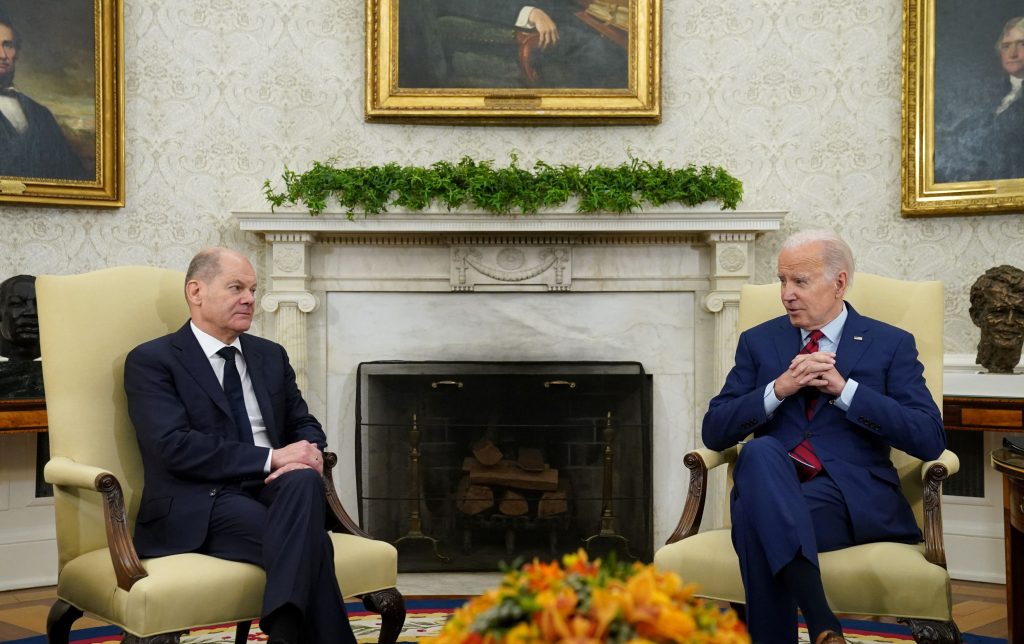
U.S. President Joe Biden meets with German Chancellor Olaf Scholz in the Oval Office of the White House in Washington, U.S., March 3, 2023. REUTERS/Kevin Lamarque
The people who spoke to The Wall Street Journal wouldn’t specify if the U.S. government had assessed how Navalny died, and the exact circumstances of his death might never be fully established. It couldn’t be determined whether intelligence agencies had developed alternative explanations for Navalny’s death.
Because he was the last opposition figure inside Russia with enough political heft to be seen as a possible leader, his death appeared to mark the culmination of a long-running Kremlin campaign to kill or force into exile any possible alternatives to Putin. Since the invasion of Ukraine, a series of other Russians have died in unusual circumstances on three continents.
Intelligence assessments are often based on a mosaic of fragmentary informational components and frequently rely on a mix of classified details and open-source, or publicly available, streams of data.
The Office of the Director of National Intelligence, which oversees U.S. intelligence agencies, declined to comment on the issue. A representative from the Russian Embassy in Washington didn’t respond to a request for comment.
Russia’s prison service said Feb. 16 that Navalny fell unconscious after a walk at the penal colony where he was serving time. The statement said that medics arrived to revive him, but that they failed and he died.
Just one week before his death, Biden and German Chancellor Olaf Scholz had discussed a potential proposal for a prisoner trade that might have freed Navalny, along with Americans being held in Russia. Those include Wall Street Journal reporter Evan Gershkovich and a former U.S. Marine , Paul Whelan, both of whom have been designated as wrongfully detained by the U.S. government, which has said it is working to negotiate their release.
In return, the Kremlin wanted Vadim Krasikov, a Russian intelligence operative convicted in Germany of murdering a Georgian dissident.
The Anti-Corruption Foundation, founded by Navalny, has said he was killed after Putin became aware of that potential prisoner swap and acted to prevent it. The group’s head of investigations, Maria Pevchikh, said the foundation had been involved in efforts to win Navalny’s freedom.
Putin said in comments in March that he had agreed to the idea of a swap between Navalny and people held in the West days before Navalny died. The Russian leader said the only condition was that he never return to Russia.
The Kremlin has denied state involvement in the death and the previous poisoning of Navalny.
Gershkovich, who was accredited as a foreign correspondent by Russia’s Foreign Ministry at the time he was detained, has been held for over a year on an FSB allegation that he engaged in espionage—an accusation the Journal, the U.S. government and he vehemently deny. On Tuesday, a Moscow court rejected an appeal against his detention , meaning he is expected to remain in prison until at least June 30.
Whelan, a corporate security executive from Novi, Mich., has been held in Russia since late 2018 on espionage charges that he, his family and the U.S. government deny. He was convicted of the charges in 2020 and sentenced to serve 16 years in a penal colony.
Navalny, who was 47 when he died and who had been in jail since 2021, was the vocal face of resistance within Russia to what he and his supporters said was Putin’s increasingly authoritarian and corrupt rule. He had been serving three prison sentences amounting to more than 30 years on charges he and his supporters said were fabricated.
Navalny was detained after returning to Russia from Germany, where he had recovered from what German doctors said was poisoning with a Soviet-era nerve agent , Novichok. The U.S. government and independent investigators blamed his poisoning on the Kremlin.
His death came months after he had skipped a series of court dates and appeared to have gone missing, only to turn up at a prison colony known as the Polar Wolf, in the remote Arctic region of Yamalo-Nenets, a bitingly cold, highly isolated and difficult area to reach.
In December, he surfaced on social media and flashed his typically acerbic humor, telling his supporters: “I am your new Santa Claus.”
Write to Aruna Viswanatha at aruna.viswanatha@wsj.com , Dustin Volz at dustin.volz@wsj.com , Warren P. Strobel at Warren.Strobel@wsj.com , Alan Cullison at alan.cullison@wsj.com and Thomas Grove at thomas.grove@wsj.com
